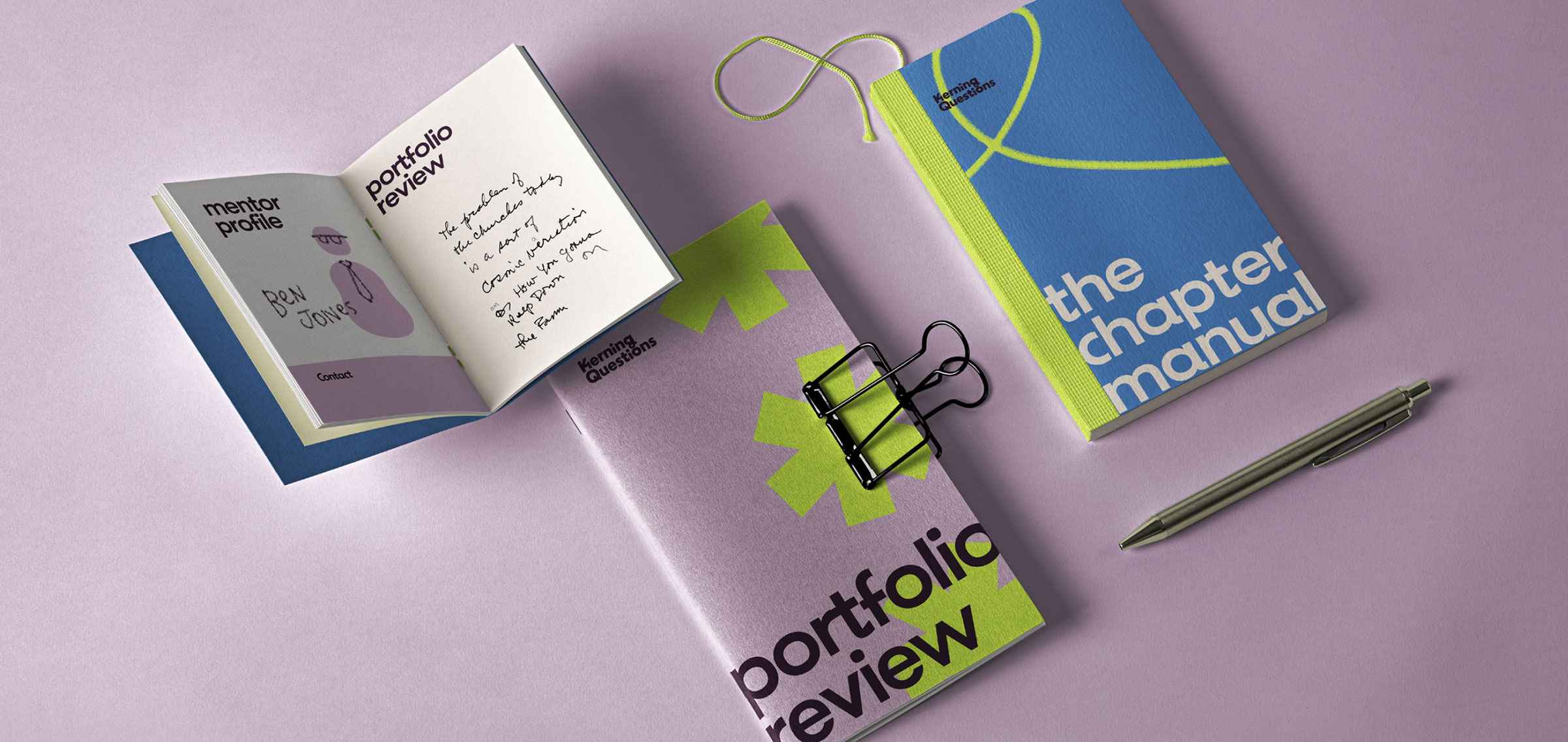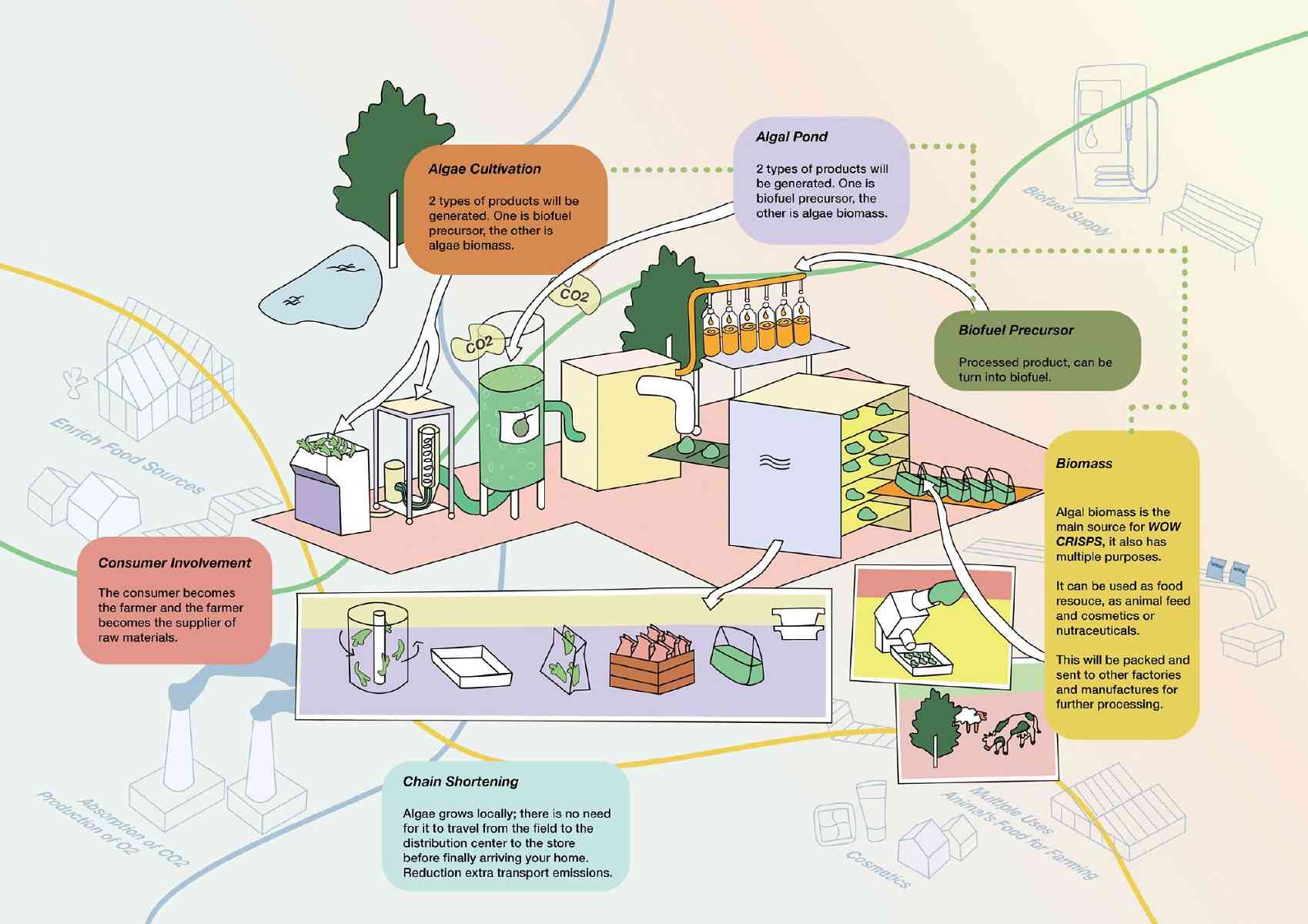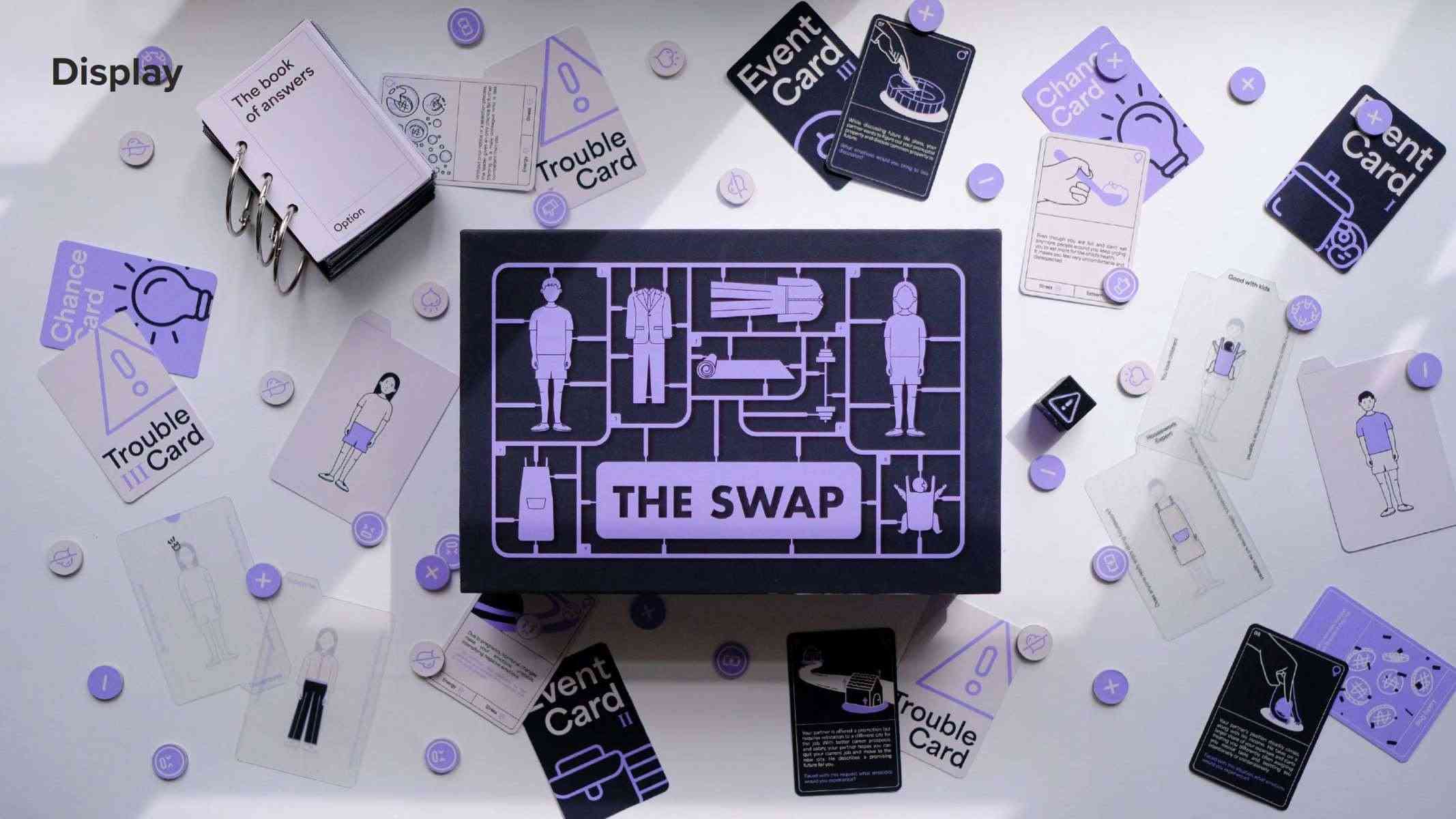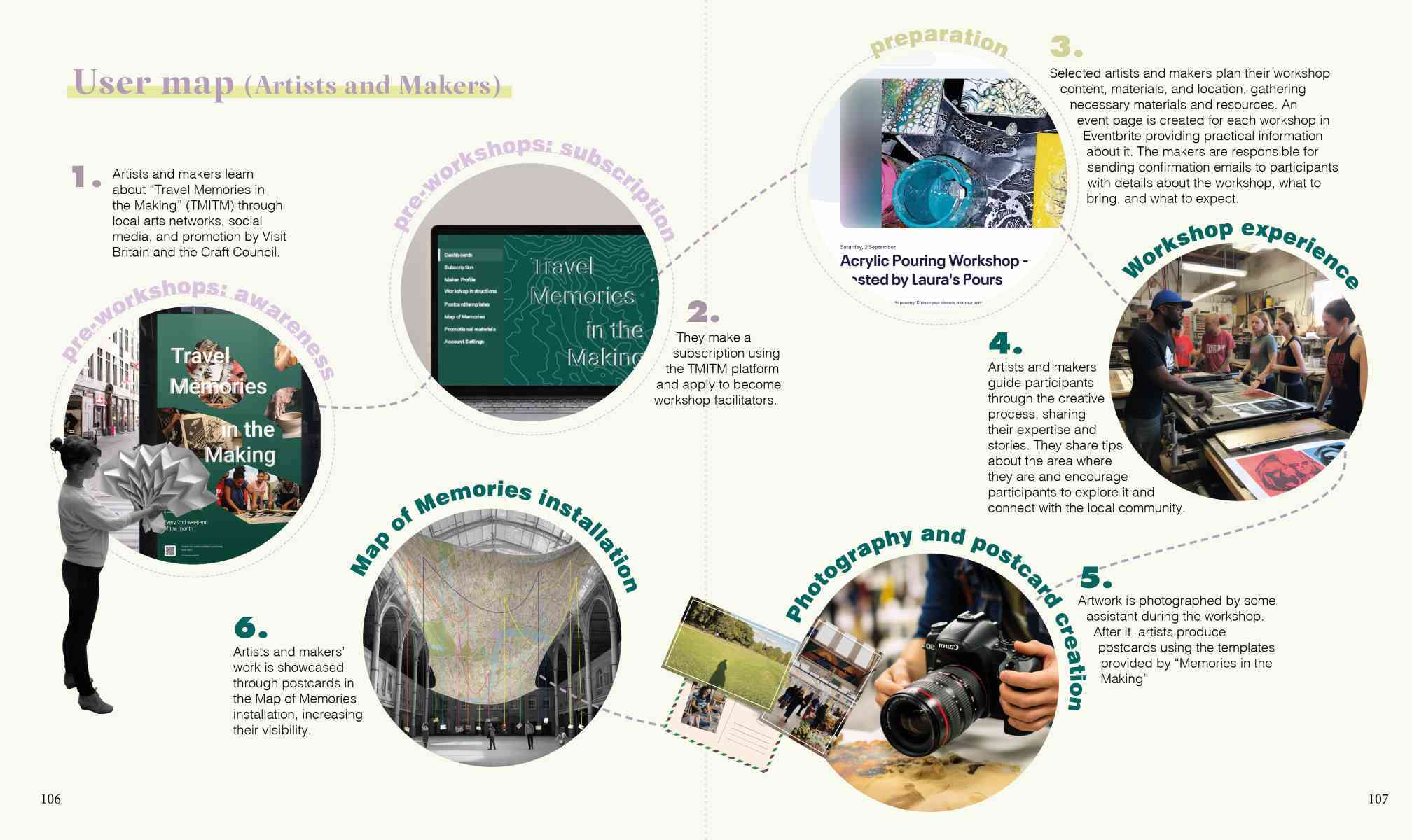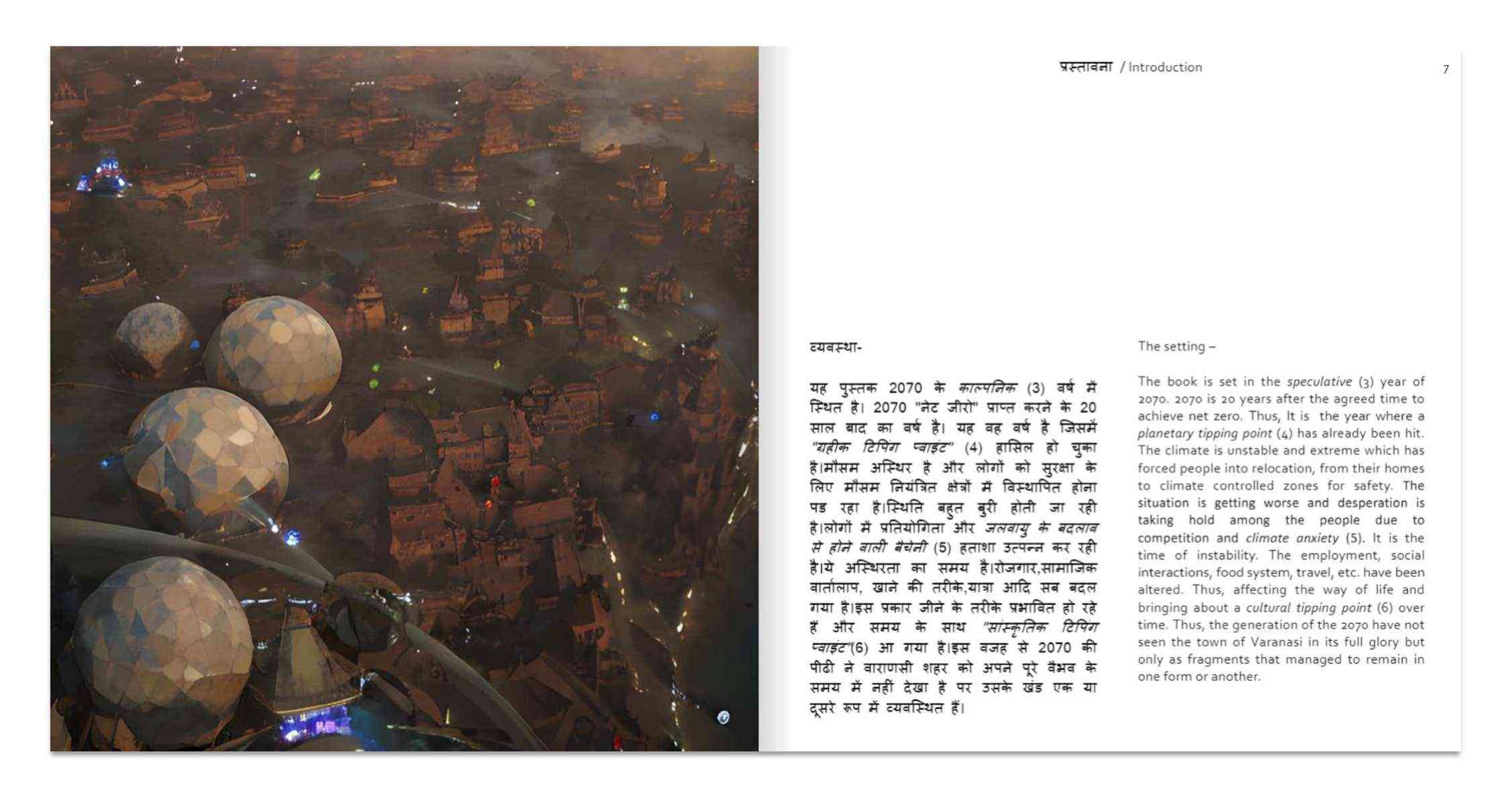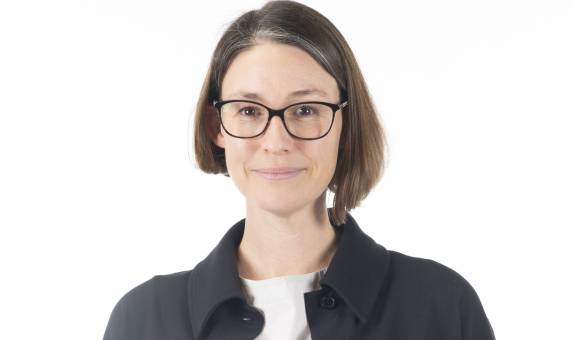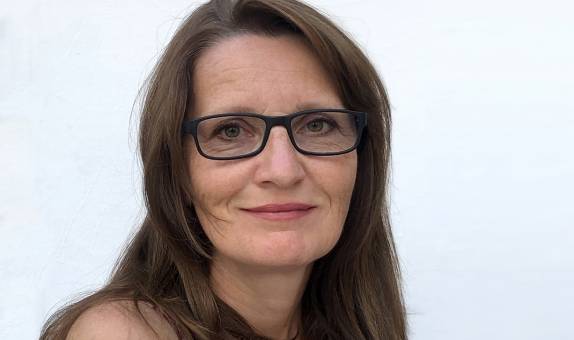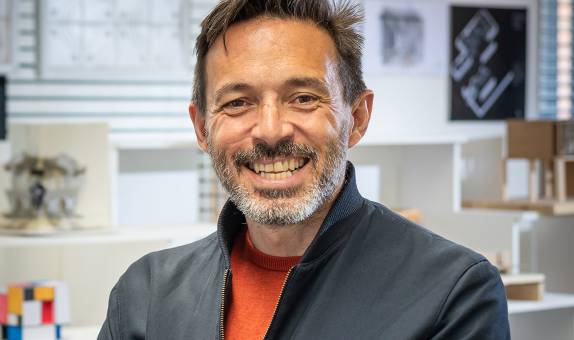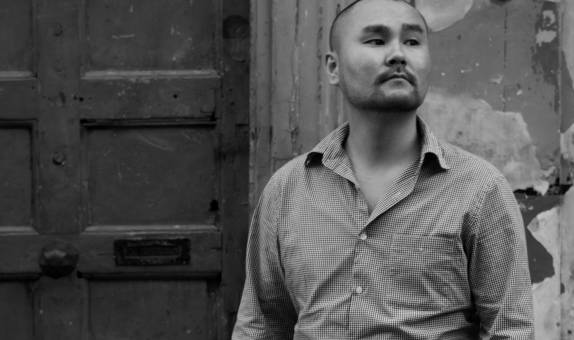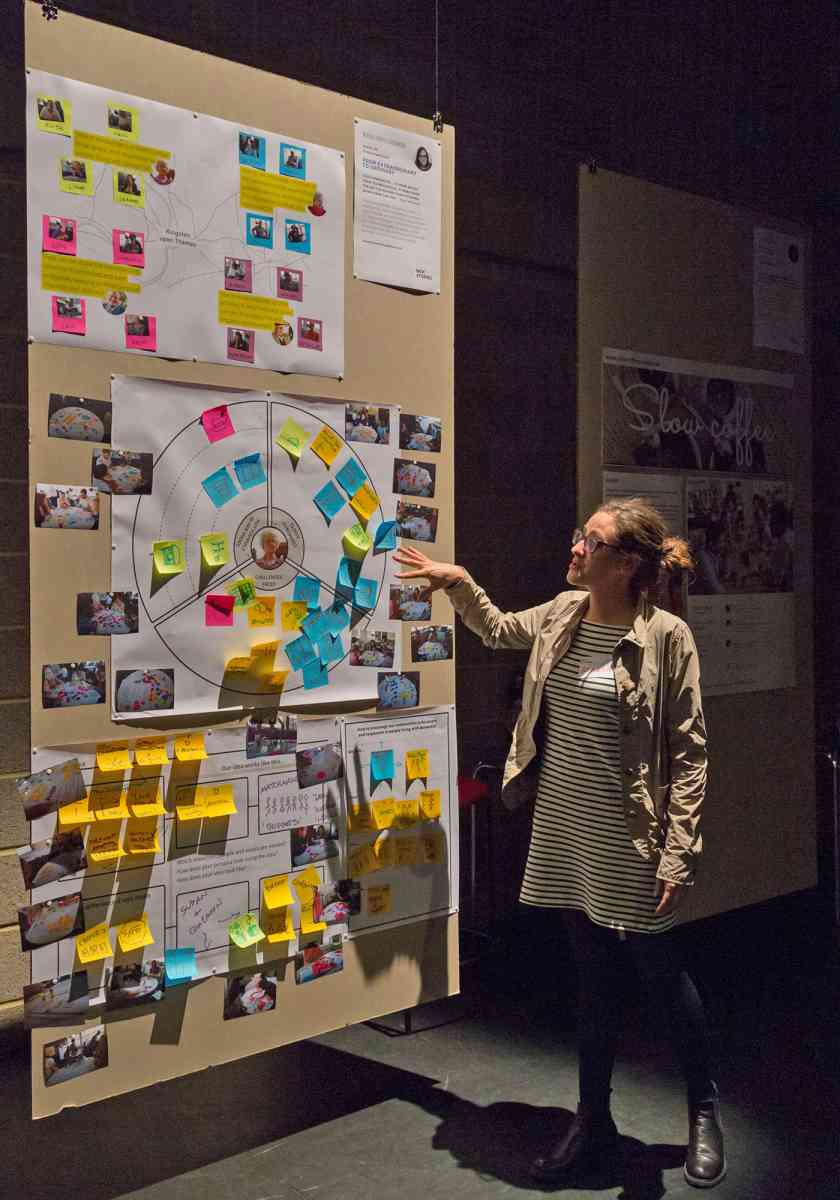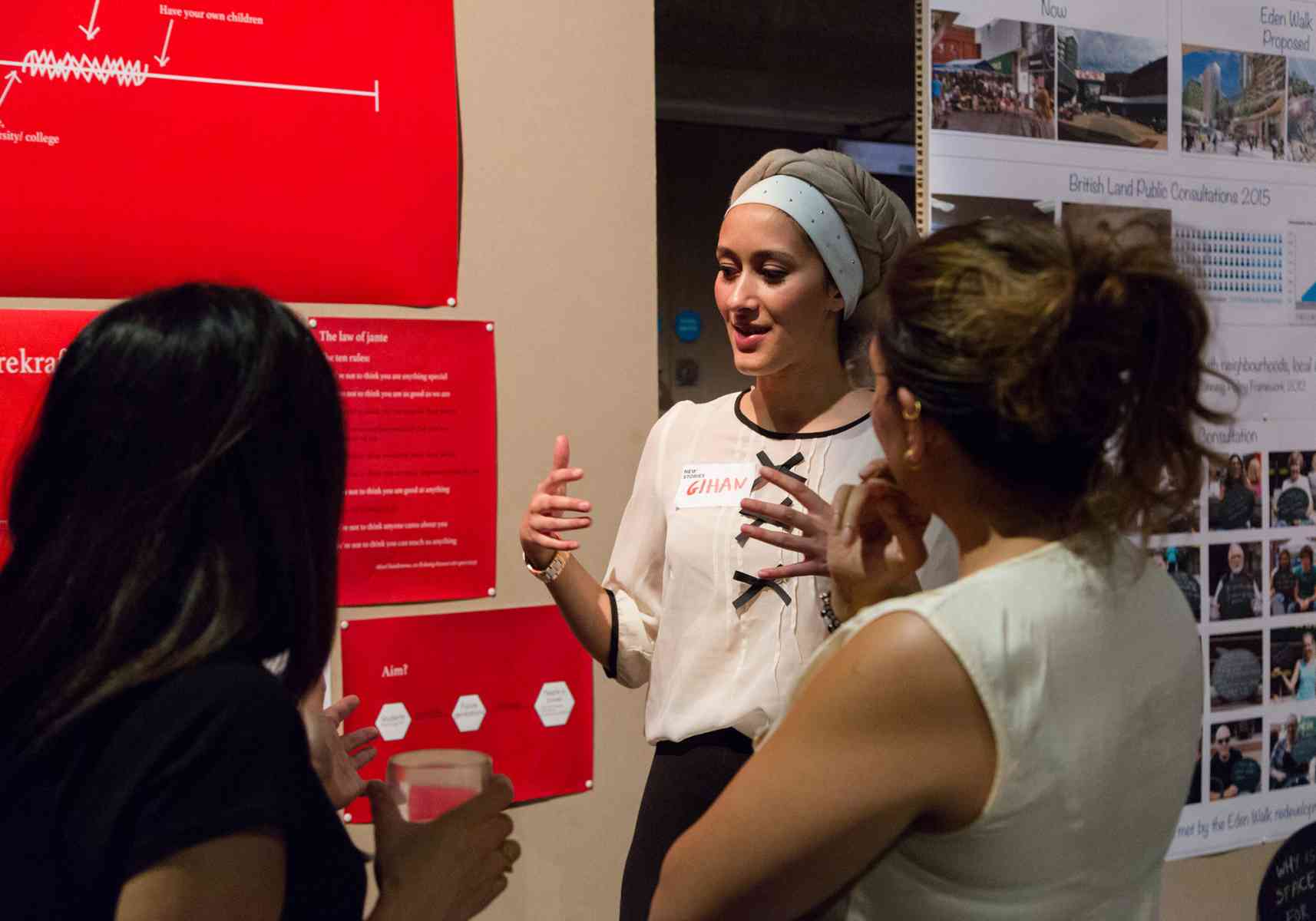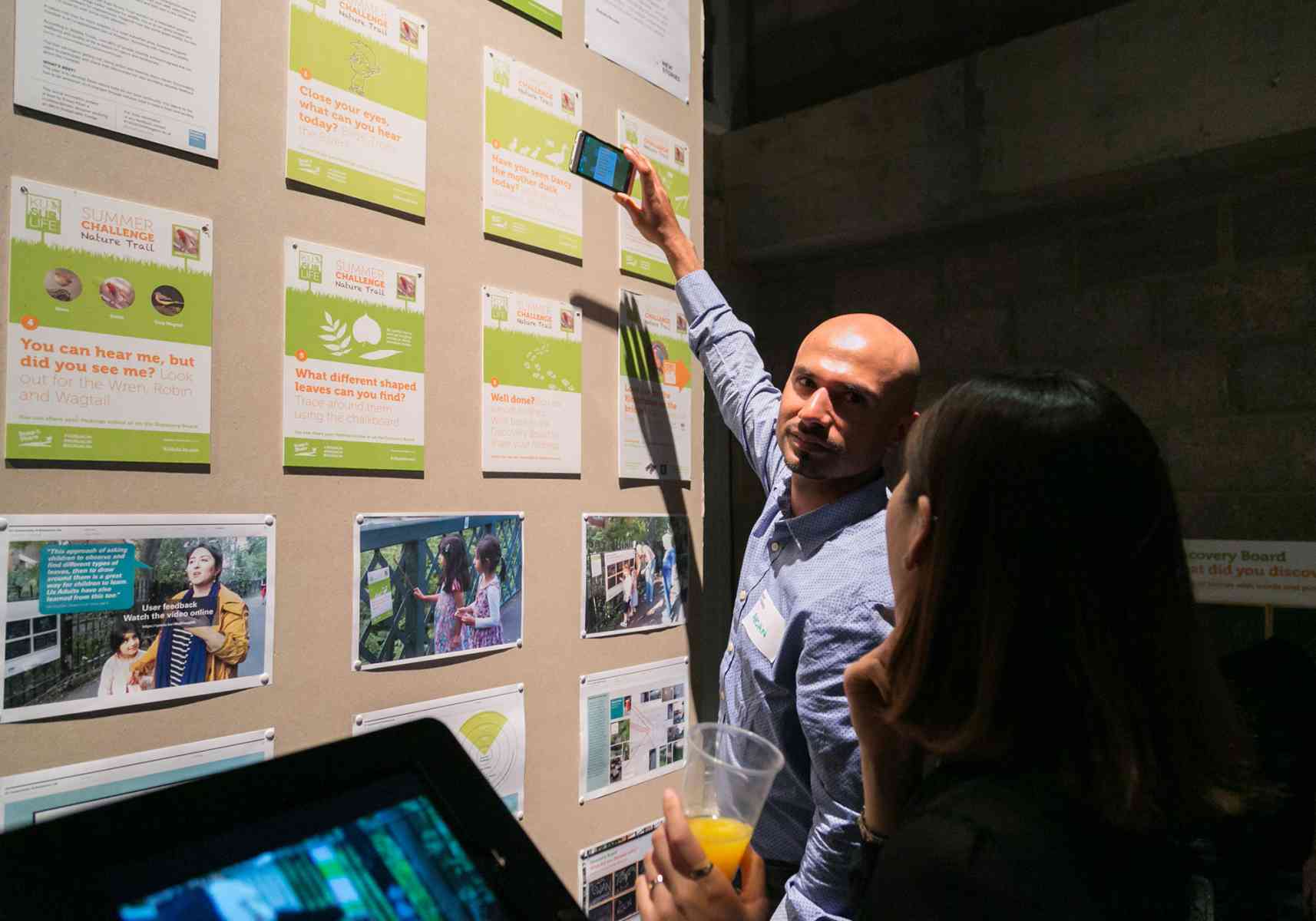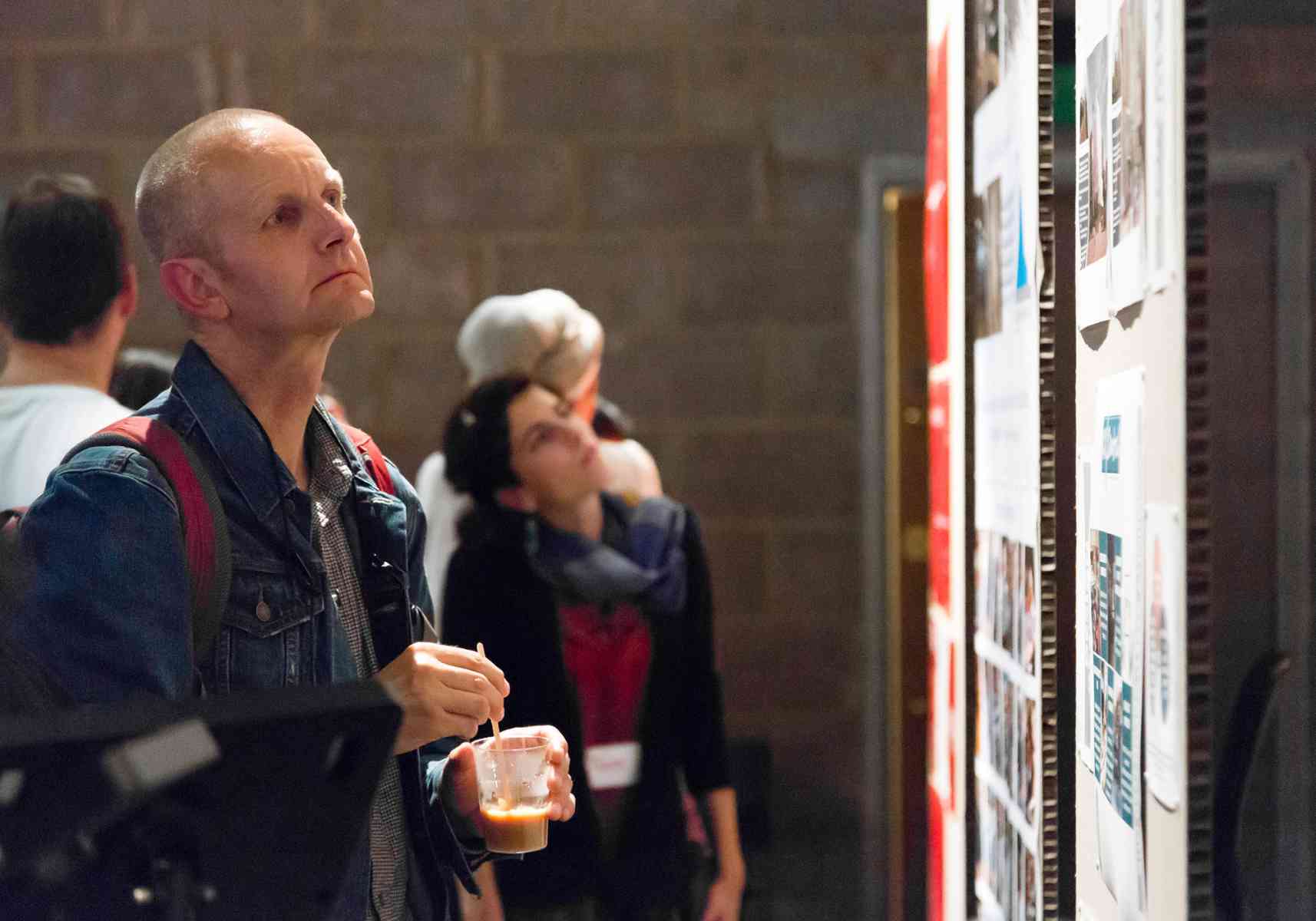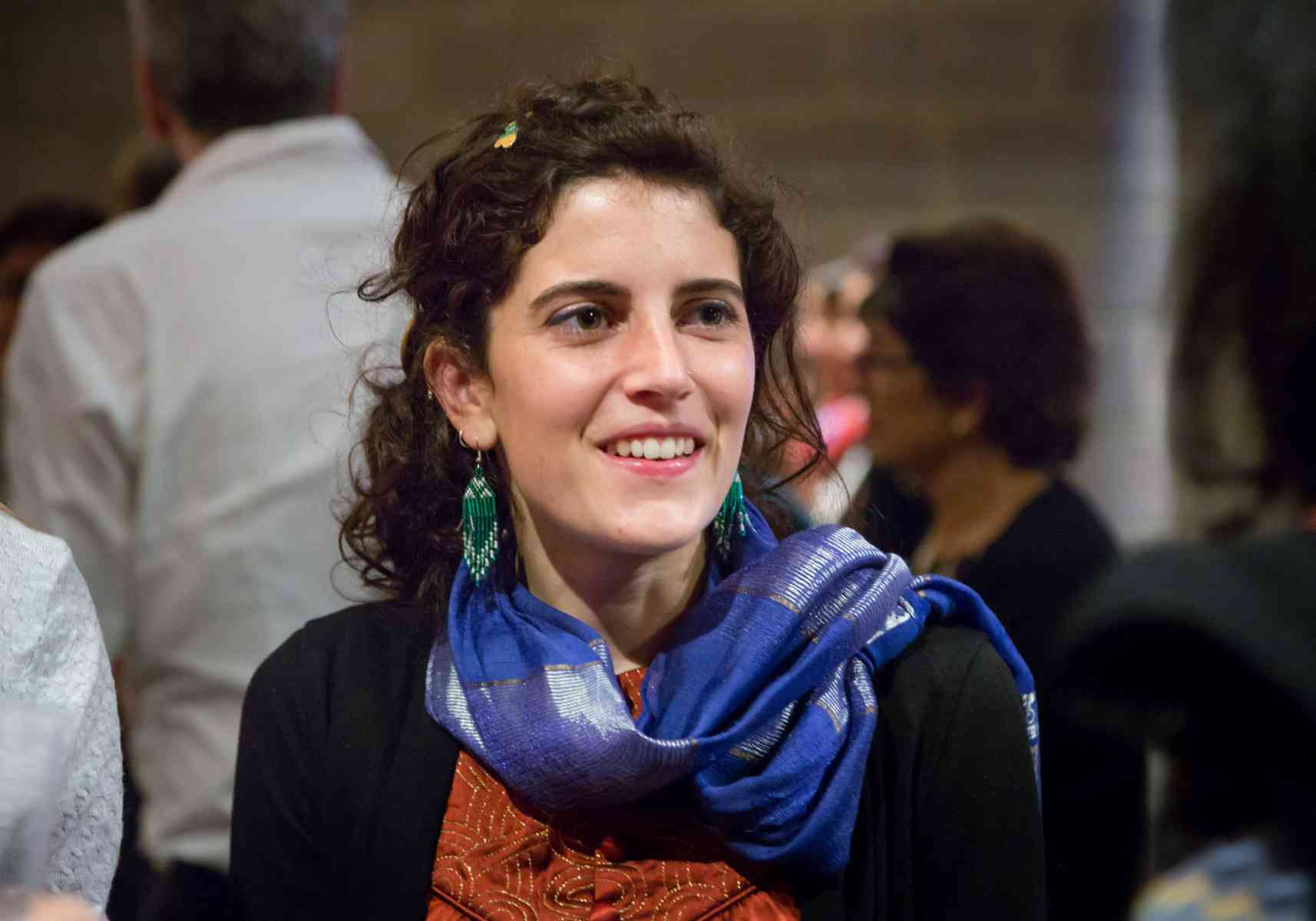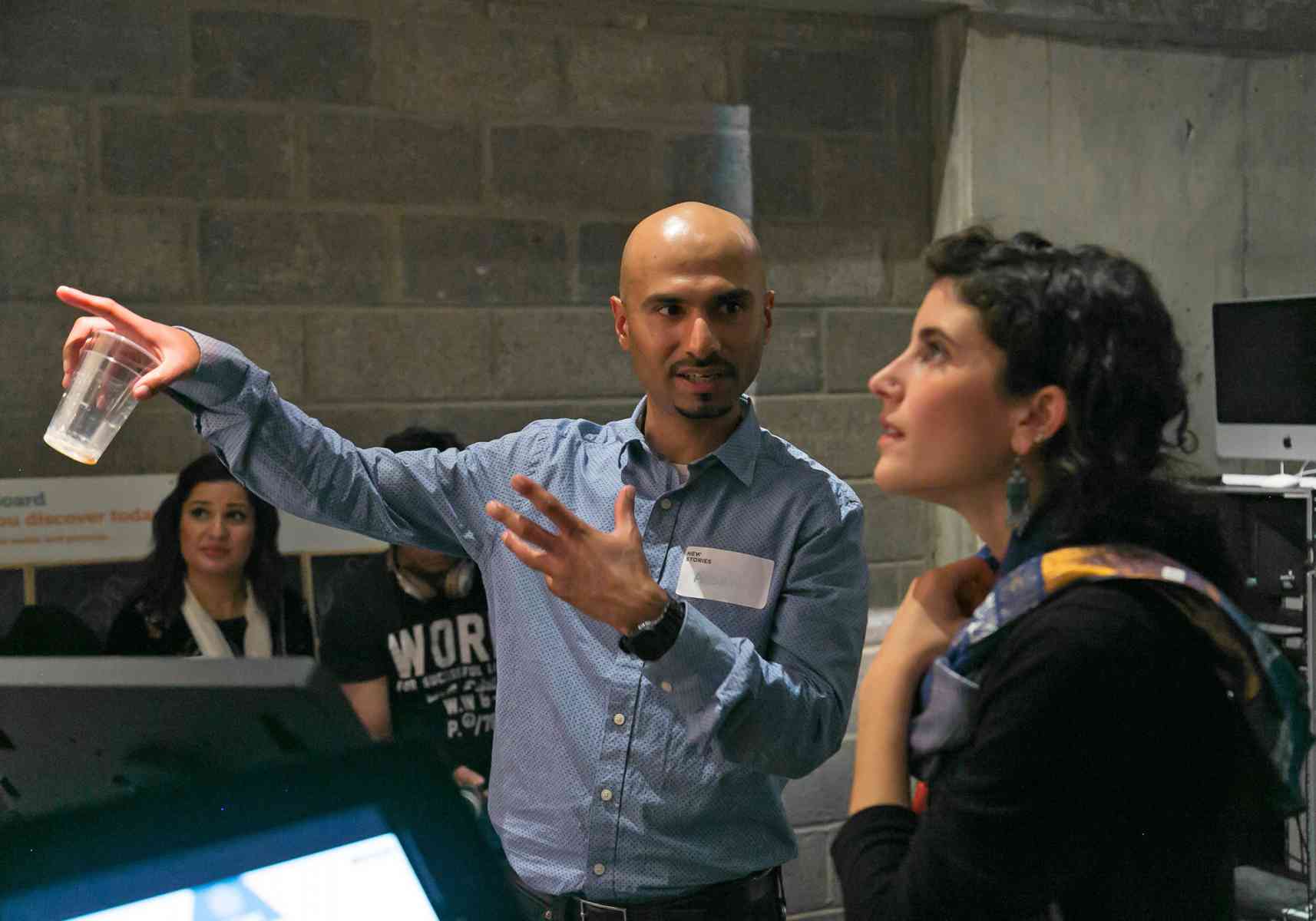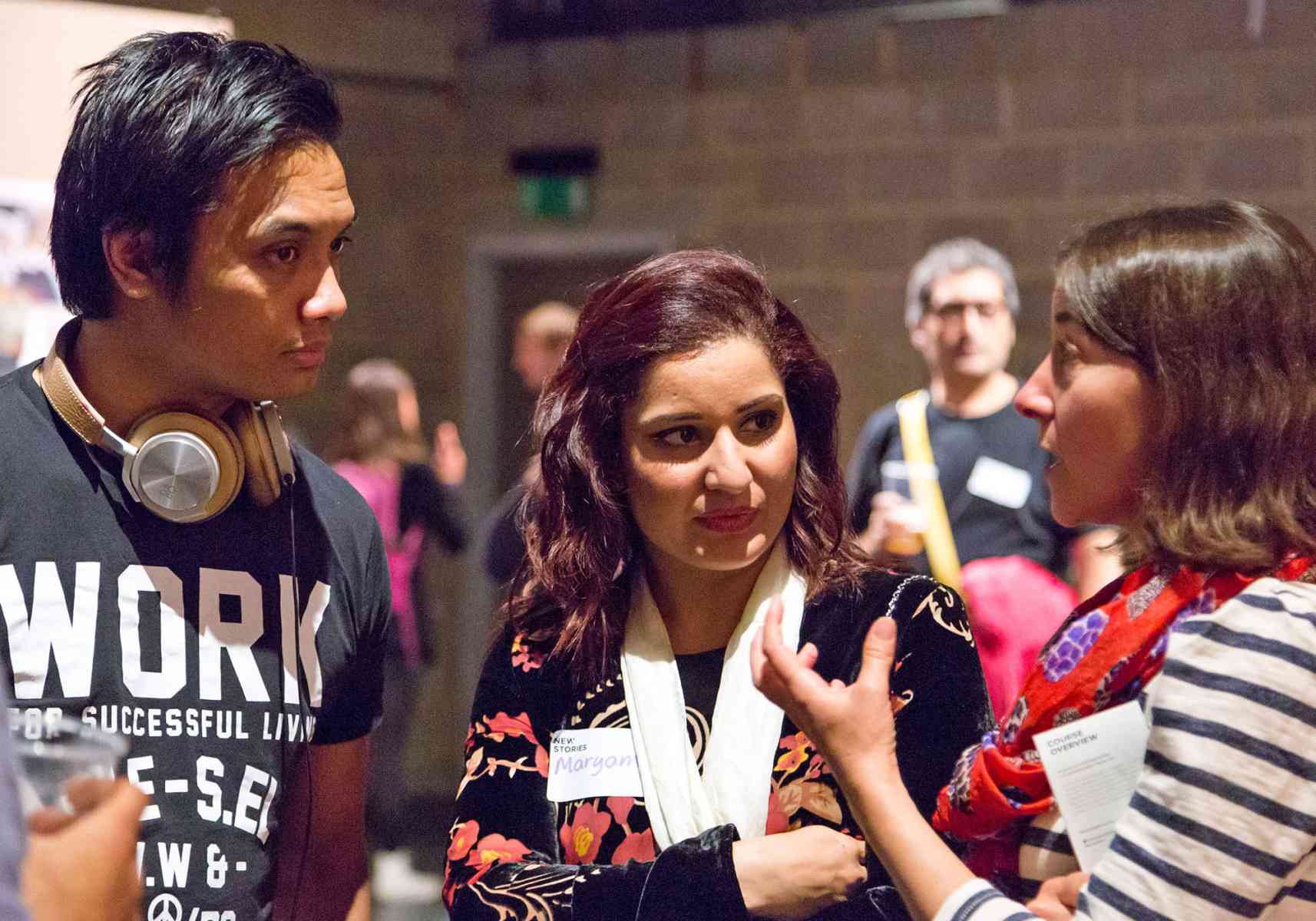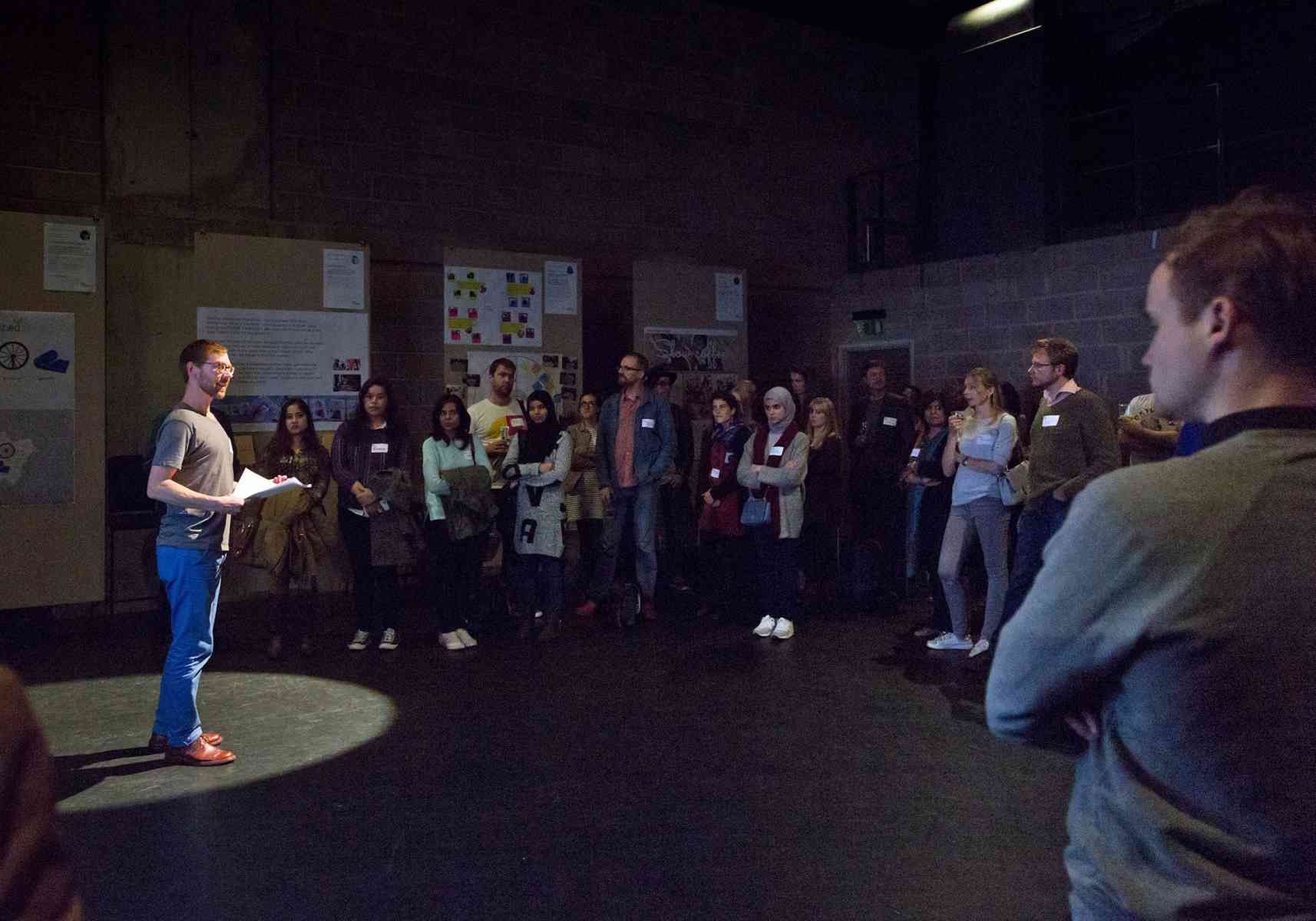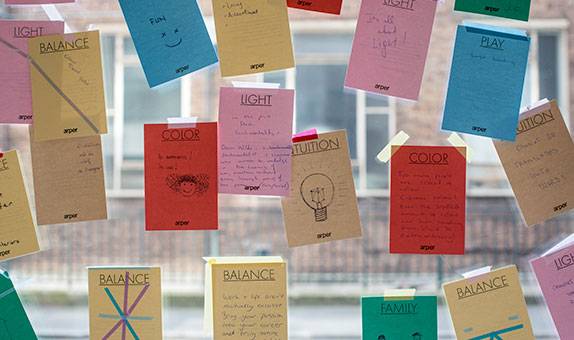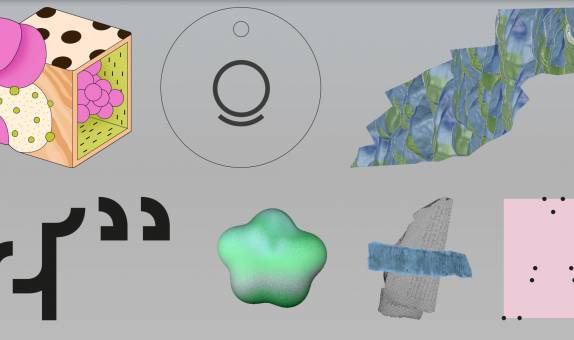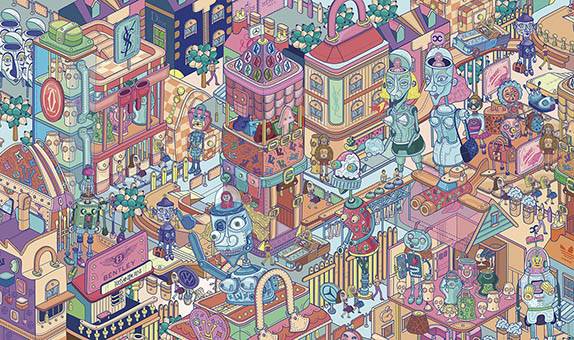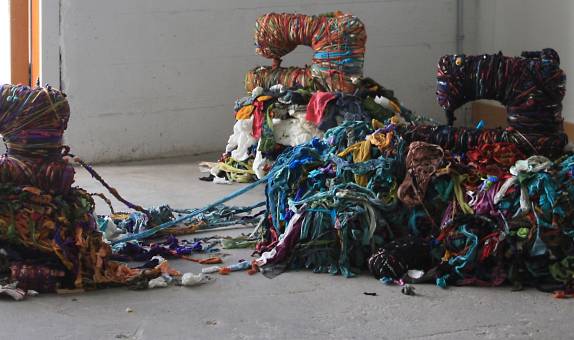Sustainable Design MA
Why choose this course?
The Sustainable Design MA welcomes those who want to direct their existing creative practice towards ambitious visions of a more sustainable, inclusive and equitable society. Our established, multi-disciplinary course will enable you to raise your sustainability literacy, and then design meaningful responses to the challenges of unsustainability that move you the most.
As a course, we ask – what's next? What's next for design thinking that addresses the climate emergency? What's next for design innovation that imagines more sustainable futures? What's next for design practice that questions what we design, how we design, and why we design? Our graduates challenge the design industry to redesign design. And each year we invite our new students to challenge us to rethink what we currently think.
We explore innovative, practical, provocative, speculative and radical ways to help realise sustainable visions through design. We think critically, holistically and sensitively about the diverse agendas that sustainability addresses, and the intersectional challenges it presents. We think through making, testing, questioning, and imagining. We contribute our global perspectives and diverse experiences to our collective thinking and understanding of sustainability. We are collaborative. We work with students on other courses within the Design School.
We are a cohort of graphic designers, product designers, service designers, furniture designers, textile designers, digital designers, experience designers, fashion designers, interior designers, architects, illustrators, filmmakers, strategists and more. We are unified by a commitment to designing sustainability itself.
We welcome full-time and part-time students.
See what we are up to on our Sustainable Design MA Instagram.
| Mode | Duration | Attendance | Start date |
|---|---|---|---|
| Full time | 1 year | 2 days a week |
September 2024 September 2025 |
| Full time | 2 years including professional placement | 2 days a week, plus placement year |
September 2024 September 2025 |
| Part time | 2 years | Contact the course leader for details |
September 2024 September 2025 |
Stand-alone module: Design for Social Innovation.
| Main Location | Kingston School of Art, Knights Park |
Reasons to choose Kingston
- This course is open to designers from all backgrounds who want to go beyond the boundaries of their existing disciplines rather than simply refine their existing practice.
- You will benefit from expert tutors, professional designers and specialist practitioners, alongside field trips, workshops and talks from a wide range of organisations that further sustainability.
- This course is distinctive through its focus on multi-disciplinary, socially-led design for sustainable change.
The Art School Experience
As part of Kingston School of Art, students on this course benefit from joining a creative community where collaborative working and critical practice are encouraged.
Our workshops and studios are open to all disciplines, enabling students and staff to work together, share ideas and explore multi-disciplinary making.

Student work
What you will study
The course offers diverse approaches to designing, including research techniques and ethics, user-centred and participatory methods, experimental making, prototyping and user-testing. You'll work in the studio and workshops on specific projects reflective of the modules comprising the course. Activities can include specialist lectures, workshop inductions, group and individual tutorials, seminars and symposiums.
You'll be expected to think critically about both sustainability and design practice, and to engage with related theoretical and contextual studies, through curated reading lists and lectures. You'll be encouraged to bring your personal interests and experiences to the project briefs – in order to explore aspects of sustainability that resonate with you, and to become a Citizen Designer.
You'll need to be self-directed, reflective and practical in your approach, with direction and purpose.
This course is part of the Design School's postgraduate programme. The structure, shared with students from other design courses, enables you to explore your individual specialist interests within an integrative learning environment that provides an understanding of the value and role of interdisciplinary methods and ways of working. The influences and impact of thinking from other related design subjects on your own specialist study is an important aspect of the identity and the community of interdisciplinary practice at masters level in the Design School.
Modules
Optional placement year
Stand-alone module: Design for Social Innovation
Core modules
Design for Social Innovation
30 credits
Design for social innovation is the emerging mode of design practice and theory in which design thinking is applied to social and societal challenges. This module focuses on the development of design-based research skills and capabilities useful for responding to real-world challenges or so-called 'wicked problems'. Emphasis is placed on problem-finding and problem-setting, rather than simply seeking solutions to problems as they are currently expressed.
Designing Research
30 credits
The aim of the module is to give you an understanding of the design research tools and methods that are available to you, to inform and support the development of your practical study, and to provide the basis of your further study on your course. Practical research methods are explored, with an emphasis on the development of creative and evidence-based approaches to experimentation, and critical reflection on practical design work.
Sustainable Design Principles, Perspectives and Practices
30 credits
This module explores key principles and perspectives that inform various practices of sustainability, sustainable development and sustainable design, in developed and developing global contexts. It examines the ways in which contemporary and emerging modes of design practice and theory relate to the sustainability agenda.
Creative Futures
30 credits
This module is based on the assumption that the best jobs/careers in the creative industries do not exist – they are invented from individual creative ambitions. The module explores how this can be approached in practical terms. The programme of study encourages you to develop a personal and critical approach to your future career, and how this can inform the development of your individual major project for the Major Project.
The Major Project
60 credits
The Major Project – the capstone project – consolidates the knowledge gained in earlier modules, and is informed by your prior learning within the Design School's postgraduate interdisciplinary framework and course-specific specialist study. You will extend your work on the course thus far in the form of a practical design proposal, defining and developing a substantive solution to an individually defined design-related problem. In so doing, you will demonstrate advanced understanding and application of contemporary design practice.
Many postgraduate courses at Kingston University allow students to do a 12-month work placement as part of their course. The responsibility for finding the work placement is with the student; we cannot guarantee the work placement, just the opportunity to undertake it. As the work placement is an assessed part of the course, it is covered by a student's Student Route visa.
Read about our student Katie Sharman's work placement on our blog: she completed a ten-month placement as the Communications and Sustainability Coordinator at Hackney Herbal, a community-focused social enterprise.
Find out more about the postgraduate work placement scheme.
Optional modules
Professional Placement
120 credits
The Professional Placement module is a core module for those students following a masters programme that incorporates professional placement learning, following completion of 120 credits. It provides you with the opportunity to apply your knowledge and skills to an appropriate working environment, and to develop and enhance key employability skills and subject-specific professional skills in your chosen subject. You may wish to use the placement experience as a platform for your subsequent major project module, and would be expected to use it to help inform your decisions about future careers.
Design for Social Innovation
Design for social innovation is an emerging mode of design practice gaining popularity and interest both within the design professions and more widely, for example in the public sector. Local authorities are increasingly looking to employ designers to redesign public services and to deliver their programmes more effectively.
There is therefore demand for training in design for social innovation. This is a distinguishing feature of the Sustainable Design MA, but there are designers and other practitioners who do not yet wish to embark on a full MA course. This module is for them.
The module will be based around a 'live' project brief and include sessions with leading practitioners in the field.
"This module will be useful to designers and those who come from the world of frontline social impact services, who want to learn more about innovation and design - and to gain practical experience with which to develop." Nat Hunter (Chief design officer, Design Council)
About the stand-alone module
This is currently a course-specific module within the Sustainable Design MA. It is also available as a credit-bearing, stand-alone module, whereby it can be taken without enrolling on the Sustainable Design MA (although the credits could be used subsequently for entry to the course). Students enrolled on the MA and stand-alone modules are part of the same module cohort, participate equally, and have the same module experience.
Sessions
Please note that this is an indicative list of sessions and is not intended as a definitive list.
- The role for design in social innovation
- Design process models (including the Double Diamond framework)
- User-centred design research methods (such as personas, journey mapping, role playing, user diaries)
- Designing your design brief
- Physical prototyping of your concepts
- Research ethics in social innovation
- Design studio visit(s)
Dates
This is a 12-week module.
- Ten full teaching days (10.30am–1pm, 2–4.30pm), one day per week (specific day to be confirmed)
- One self-directed project day (Week Six, the University's Enrichment Activity Week)
- Some teaching days include individual and group tutorials to support development of your work for submission for assessment. This means you will not attend for the whole day on those days.
Cost
The stand-alone module Design for Social Innovation is charged on a pro rata basis from the Home full-time MA fee (one sixth).
Apply or enquire
How to apply for the stand-alone module.
Please email Zoe Bather with any enquiries about this stand-alone module.
Please note
Optional modules only run if there is enough demand. If we have an insufficient number of students interested in an optional module, that module will not be offered for this course.
Students discuss their projects
Kingston University's Sustainable Design MA students share their final major projects at their graduate show, Future Proof, as part of London Design Festival. The show saw 15 students present their design proposals for a more sustainable, equitable and inclusive future.
Entry requirements
Teaching and assessment
Assessment will be made at the completion of each module. Module marks are added to achieve a total final mark. Assessment will be made through practical design projects, presentations, and a final major project.
Who teaches this course?
You will be taught by leading academics and practitioners in sustainable design, social design, social innovation, participatory design, strategic design, service design, design-led innovation, and related topics. Our excellent reputation means that industry leaders regularly visit our students shows, to see the best of the new talent.
This course is delivered by Kingston School of Art, which has its roots in the studio-based approach of Britain's art school system (the original School of Art was founded in the 1890s). Learning takes place in our specialist studios, each subject area having its own fully equipped studio, where you take part in classes, tutorials and critical reviews with fellow students. This strong studio culture also ensures regular interaction between students and tutors.
In addition to the studio-based aspects of the course, you will take part in field trips to exhibitions, museums, design studios, conferences, site visits and other professional environments. You will be encouraged to engage closely with the diverse businesses that make London one of the most important centers for the creative industries. Our industry connections mean we provide unique study opportunities, such as:
- the chance to have your work seen by eminent members of your profession
- 'live' projects, site visits and placements in prestigious companies or institutions
- project work and workshops with visiting lecturers and industry specialists.
Postgraduate students may also contribute to the teaching of seminars under the supervision of the module leader.
Fees for this course
Additional costs
Depending on the programme of study, there may be extra costs that are not covered by tuition fees which students will need to consider when planning their studies. Tuition fees cover the cost of your teaching, assessment and operating University facilities such as the library, access to shared IT equipment and other support services. Accommodation and living costs are not included in our fees.
Where a course has additional expenses, we make every effort to highlight them. These may include optional field trips, materials (e.g. art, design, engineering), security checks such as DBS, uniforms, specialist clothing or professional memberships.
Facilities
Knights Park facilities
There is a wide range of facilities at our Knights Park campus, where this course is based. Kingston School of Art has recently completed an ambitious programme of investment, making significant improvements to our workshops and other resources, to ensure that students are exposed to as many creative pathways as possible.
The workshops and studios at Knights Park are open for creative exploration and allow opportunities for students and staff to collaborate on projects and share ideas, whether they are studying or researching. There are many adaptable studio and workshop spaces, active breakout spaces and stronger vertical and horizontal connections.
Our ground-breaking facilities include:
- 3D workshop, with ceramics, concrete, resin-casting, plastics, metalwork, woodwork and a bronze-casting foundry, as well as a Big Build space for Architecture, set design and large-scale model making
- Animation and post-production studios
- Digital Media workshop
- Fashion (knitting and sewing workshops), with digital and analogue facilities, plus a working dress archive which includes pieces from 1750 to the present day
- HackSpace (for collaborative, creative, solutions-focussed projects)
- Letterpress and printmaking workshop, with digital and analogue facilities, to experiment creatively
- Moving Image workshop, with studios, editing suite, and industry-standard equipment
- Photography workshop, including studios, colour, and black and white darkrooms, processing facilities
- All our facilities are open access, meaning you can use them whenever you want, and irrespective of what degree you're studying.
The University also has its own on-site galleries, including:
- Dorich House - the former studio home of the sculptor Dora Gordine and her husband the Hon. Richard Hare, a scholar of Russian art and literature. Now Grade II listed, the building was completed in 1936, to Gordine's design, and is an exceptional example of a modern studio house created by and for a female artist.
- Stanley Picker Gallery - one of the leading examples of a university gallery in the UK. Its public activities are dedicated to the research, commissioning and presentation of innovative new practice across the fields of art, design and architecture for general, academic and specialist audiences.
- project spaces at Knights Park campus, which you can book for the exhibition of large-scale work.
Resources in London
Kingston is just a 30-minute train journey from central London, where you can access world-famous museums and galleries.
New Stories showcase
Images from the MA Sustainable Design New Stories showcase held at The Rose Theatre Kingston (photos by Monika Jastrzebska). Work presented included projects on perishable jewellery, urban desire lines, the real value of our public spaces, activating the core economy through co-produced services, and establishing a fibreshed for London.
What our students and graduates say
Links with business and industry
The course incorporates collaboration with diverse partners, for example the Design Council, Futerra, Makerversity, Active Minds, Kingston Hive. These partnerships vary from year to year.
Lectures introduce students to a wide range of contemporary design practitioners and create opportunities for building contracts within the industry.
You'll also benefit from:
- live projects with external organisations
- the option to undertake a major collaborative project with an external partner or your own employer.
- Many members of staff are professional designers, which keeps your learning cutting-edge and enables you to benefit from their many years of experience.
Many graduates of the course go on to work in social innovation, strategy, sustainability consultancy, service design, communication design, circular design, biophilic design, policy design and design management; at design agencies, start-ups, social enterprises, charities, government organisations, as well as launching their own companies.
Graduate career paths include Futerra, Climate Labs, Design Council, RSA, Arc Americas, Connected Places Catapult, Innovation Unit, EY Seren, Engine UK, Nexer Digital, Transform, Sustrans, Simply Sustainable, Fuse London, Plant Designs, Surrey County Council.
The Design Research Centre
The Design Research Centre provides a creative environment for researchers engaging with the cultural, environmental and presentational contexts of design practice in its widest sense. Research in this diverse area is developed through five interrelated areas:
- Curating the contemporary - focusing on new initiatives and perspectives on curating, including the interface between design, craft and fine art.
- Design innovation - focusing on the presentational contexts of contemporary design practice.
- Design for environments - including design for wellbeing, health and micro-environments, as well as spatial, aesthetic and critical enquiries into building typologies and cultural analysis of urban and leisure environments.
- Design for screen - focusing on interdisciplinary and practice-based enquiries into screen-based media.
- Sustainability - multidisciplinary design research into issues of environmental protection and social justice.
Course changes and regulations
The information on this page reflects the currently intended course structure and module details. To improve your student experience and the quality of your degree, we may review and change the material information of this course. Course changes explained.
Programme Specifications for the course are published ahead of each academic year.
Regulations governing this course can be found on our website.
